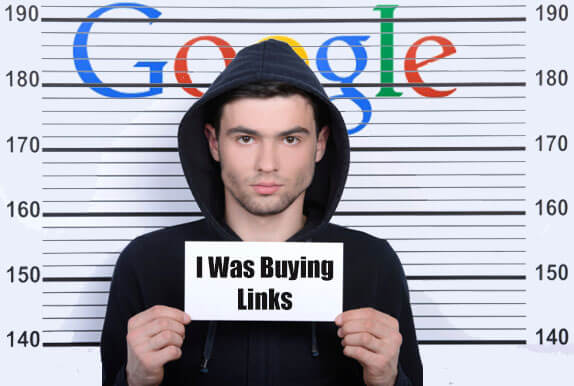Should You Turn In Your Link-Buying Competitors to the Google Police?
It’s not enough that Google has assumed the role of the world’s Internet police force – tracking down and punishing violators of its ever-changing anti-spam guidelines. Now the search engine giant is actively encouraging business website owners to turn informer against competitive websites whose SEO practices might include the buying of inbound links.
Penalties for violating Google’s paid link policy can range from degraded rankings for a varying period of time to outright delisting of the offending site from the search engine results. According to Google spokesperson Matt Cutts, penalties will be increased in severity for repeat offenders.
What Exactly is Link Buying and When is it Wrong?
Link buying occurs when a website attempts to improve its search engine ranking by purchasing links from an authority site that will pass valuable ranking juice through to the purchaser. Note that ranking power is only passed when the link is tagged dofollow. Google considers paid dofollow links an unnatural scheme to manipulate the search rankings and will penalize an offending website accordingly.
There may be a legitimate reason for buying links, such as for generating direct referral traffic. In this case, the link should be tagged nofollow; no linking juice will be passed and no Google penalty will be applied.
Googles relies on the following five criteria to help determine what is and isn’t a paid link:
- An explicit exchange of money.
- A non-monetary exchange that is close to the value of money. A pocket appointment book imprinted with your company logo would probably not raise an eyebrow while a $100 gift card clearly would.
- An expensive gift such as a free laptop would raise suspicion; a short-term loan of that same laptop might not.
- The intent of the parties. Giving away a free tablet to promote your company would be acceptable; giving away tablets to bloggers in expectation of receiving a link would not.
- The surprise factor. Music critics would think nothing of receiving free admission to a concert they were reviewing; they certainly would be surprised to receive a free smartphone for their efforts.
Yes: Lock Up the Link Buyers and Throw Away the Key
Or at least slap them with a hefty Google penalty. It doesn’t seem fair for you to pour time and money into optimizing your website, creating great content and generally following white-hat SEO practices only to have a sleazy competitor with a crappy website and plagiarized content push your site down in the rankings with a bunch of paid links.
By reporting your suspicions about a competitor’s improper use of paid links to Google, you’re not only directly strengthening your company’s position in a tough marketing environment, you’re helping to improve the search engine results, which creates a fairer and more level playing field for everyone.
No: I’m not a Snitch and I Wouldn’t Wish a Google Slap on Anyone
For starters, playing the part of a tattletale simply sticks in your craw; it’s not what mature people are supposed to do. If your suspicions are wrong, you could have cost an innocent person a lot of undeserved grief and expense.
Even if your competitor isn’t playing by the rules, policing the Web is Google’s job – not yours. Perhaps your time and energies could be better spent building, and minding, your own business.
What are your thoughts on helping Google crakdown on link buyers? Would you do it?










